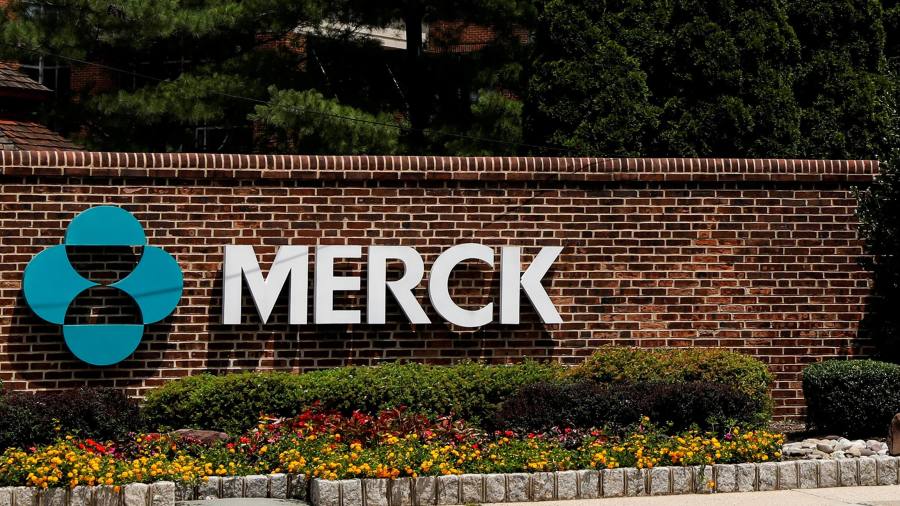News
Merck accuses US of ‘extortion’ in lawsuit against drug price controls

Merck has sued the US over a law that hands the federal government the power to negotiate prices for some of the most expensive drugs, arguing that key parts of the legislation are unconstitutional and “tantamount to extortion”.
The US drugmaker on Tuesday said the reforms contained in the Inflation Reduction Act, a key part of President Joe Biden’s agenda to reduce the cost of prescription medicines, violated the first and fifth amendments to the US constitution.
“This is not ‘negotiation’. It is tantamount to extortion. And it violates the constitution in at least two obvious respects,” said Merck in a court filing.
The reforms have been fiercely resisted by the pharmaceutical industry, which has warned they would cripple innovation and hinder development of life-saving medicines.
Merck’s lawsuit is the first by a major drug company, but analysts predict others are likely to follow its lead and sue the government ahead of the full implementation of the drug price negotiation elements of the act later this year.
Under the proposed reforms, Medicare, the US taxpayer-funded healthcare scheme for retirees, would be allowed to negotiate prices for a limited number of branded medicines. The process is due to begin in earnest in September when the Centers for Medicare & Medicaid Services (CMS) is due to identify 10 expensive drugs that will be the focus of the negotiation.
Additional drugs are due to be added to this list in coming years in a move that the Congressional Budget Office estimates will produce savings worth billions over a decade.
Merck said in its lawsuit that in reality the so-called “drug price negotiation programme” was a sham because it involved neither genuine “negotiation” nor real agreements. The singular purpose of this scheme was for Medicare to obtain prescription drugs without paying fair market value, it said.
Once the government unilaterally selects a drug for inclusion in the programme, its manufacturer is compelled to sign an agreement promising to sell the drug to Medicare beneficiaries at whatever “fair” price the agency dictates. This must represent at least a 25 per cent to 60 per cent discount and if a manufacturer refused to participate in this “negotiation” or declined to “agree” to sell at the mandated price, it incurred a “ruinous” daily excise tax amounting to multiples of the drug’s daily revenues, said Merck.
Xavier Becerra, the US Health secretary, on Tuesday said: “We’ll vigorously defend the president’s drug price negotiation law, which is already lowering healthcare costs for seniors and people with disabilities. The law is on our side.”
Chris Meekins, analyst at Raymond James & Associates, said Merck was the first but probably not the last big drugmaker that would challenge the government.
“Obviously, when you are talking about a policy that is likely to remove $150bn from pharma over a decade based on Congressional Budget Office estimates, it was pretty clear [the] industry would sue to try to stop that.”
Christopher Viehbacher, Biogen’s chief executive, told an audience at a biotech conference in Boston that the company would look at whether it should file its own lawsuit against the IRA.
He said Merck’s claim that the reforms are an “extortion” is accurate.
Roche told the Financial Times it is reviewing its legal and policy options regarding the “negative impacts of IRA on patients and innovation”.
Legal experts said the challenge to the IRA could find a sympathetic ear from US courts, particularly as Merck has indicated it is prepared to fight its case all the way to the US Supreme Court.
Matt Wetzel, a partner in the life sciences division at Goodwin, a law firm, said Merck’s lawsuit highlighted the “coercive elements” of the drug pricing reforms, which included significant restrictions on drugmakers’ ability to appeal CMS decisions and the lack of a genuine negotiation. This may be looked at sympathetically by US courts, he said.
“One question, however, is whether a court will find that a company has been harmed yet or injured yet as a result of the IRA’s provisions — or whether that harm or injury will not actually occur until September 1 of this year when the first 10 drugs are selected for the programme,” he said.
Additional Reporting Hannah Kuchler